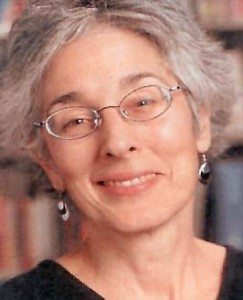BOSTON, Mass.—On April 25, the Boston University Armenian Students’ Association (ASA) hosted a discussion about what it means to be an Armenian in the diaspora. The panelists were Anita Postaljian, a 2012 Birthright Armenia volunteer; Stephen Kurkjian, a retired Boston Globe editor/reporter; and Judy Norsigian, the executive director of Our Bodies Ourselves and a board member of the Armenian International Women’s Association (AIWA).

Having grown up in the United States to Lebanese-Armenian and Syrian-Armenian immigrant parents, Postaljian did not learn proper English until she entered public school at the age of eight. Speaking frankly, she admitted that her family was not thrilled to hear of her decision to go to Armenia. “My mom went once as a teenager during the Soviet era and did not have a good experience,” she said. Despite this, Postaljian found herself so mesmerized by the beauty of the country and its people that she extended her stay from two months to seven. One of the projects she helped oversee involved the women of the Alaverdi village who knitted stuffed animals for profit. Postaljian stressed the importance of the slogan, “Find the Armenian that you are,” and explained how Birthright Armenia enabled her to do just that.
Stephen Kurkjian, the son of a genocide survivor, spoke about his own identity struggle growing up in Boston. “Boston at the time was a melting pot of cultures, and I grew up very American,” explained the journalist, who is also on the board of the National Association for Armenian Studies and Research (NAASR). Kurkjian’s father, like many survivors of the genocide, did not talk about his past, until one day, at age 90, he began to reminisce about his village in present-day Turkey. This prompted Kurkjian to research his ancestry, and he began to ask questions that he considered “embarrassing” for not knowing. He published an article called “Roots of Sorrow” about his father’s journey back to his childhood village. “That was the best, but hardest piece I’ve ever written,” Kurkjian explained. Today, he concedes that he has found a healthy balance with his identity as an Armenian American. “I wish I called the piece ‘Seeds of Hope’ instead, because I see the positives from remembering this history now.” Concluding his talk, Kurkjian stated, “I’m glad we’ve got the leaders of the next generation of Armenians here.”
Closing up the evening was Judy Norsigian, who talked at length about women’s health in Armenia, and her organization, Our Bodies Ourselves, which advocates for women’s health by “challenging the institutions and systems that prevent women from having full control over their bodies.” Some of the statistics Norsigian mentioned were staggering. “Armenian male infertility is the highest in Europe,” stated Norsigian, who went on to explain some of the causes of this infertility, including promiscuity. Some critics in Armenia have accused the organization of “committing genocide” for providing women access to contraception, Norsigian stated.
At the AIWA conference in Yerevan in 2000, Norsigian worked to raise awareness of several initiatives, such as the Women’s Entrepreneurial Program (WEP), which helps women start their own businesses, and the Ajakits NGO in Gyumri, which provides healthcare and psychological services for battered women and children. Norsigian concluded that unfortunately, over the last 10 or 15 years, domestic violence has been on the rise. She contributed this to the tough economic situation in Armenia, which has added stress on husbands who, in turn, take it out on their wives. Yet, Norsigian provided a solution for change: “The leadership at the top is really what counts. They need to set an example for the rest of the nation to follow.”
2 Comments To "Panel Discussion on ‘Being Armenian: What Does It Mean Today?’"
#1 Comment By rob norsigian On September 1, 2015 @ 9:36 pm
need more leaders likejudy
#2 Comment By rob norsigian On September 1, 2015 @ 9:38 pm
proud people